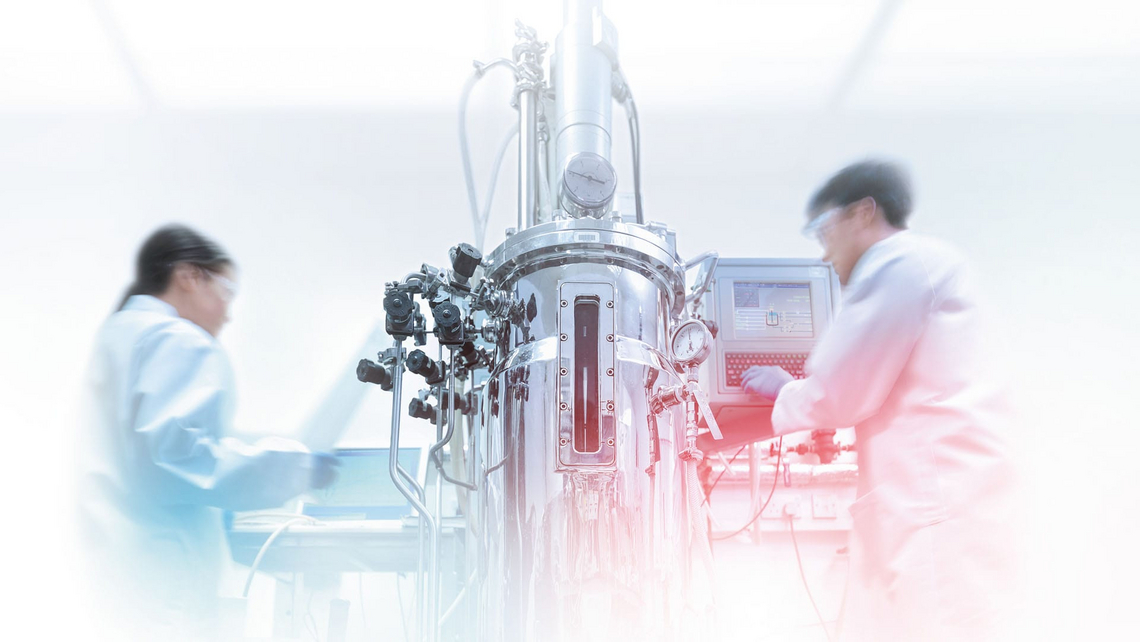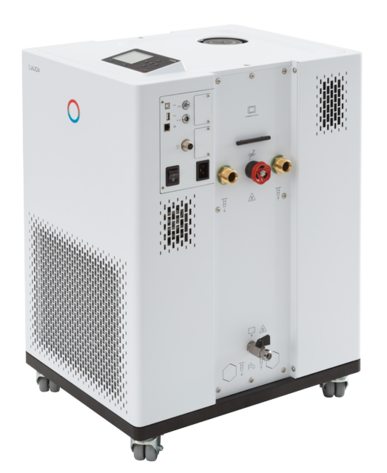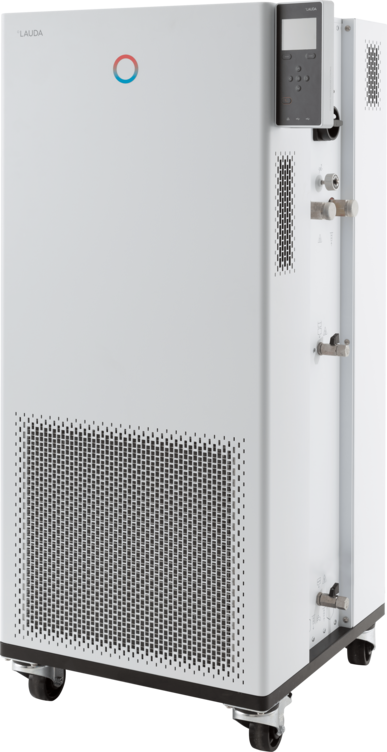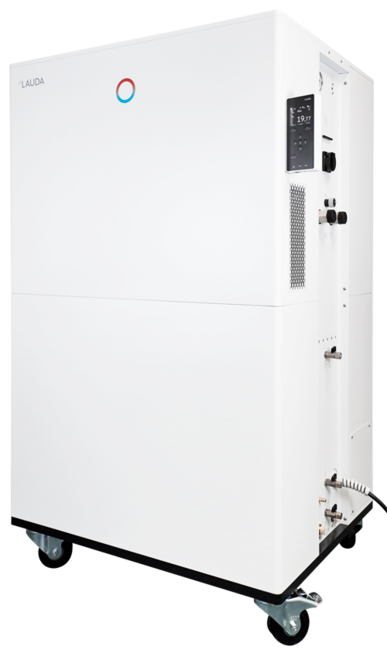Efficient process thermostats with intuitive control
We have technically redeveloped the powerful process thermostats of the Integral line and taken them into the digital age. The models in the T, XT and P series feature an intuitive operating concept that allows monitoring and control via integrated web browser.
The LAUDA Integral T process thermostats provide effective control of external temperature control processes in the temperature range from -30 to 150 °C.
The LAUDA Integral XT process thermostats operate on the flow-through principle with cold oil superimposition and enable the entire temperature range from -90 to 320 °C to be used with a single temperature control medium.
The LAUDA Integral P process thermostats operate on the principle of pressure superposition in the temperature range from -40 to 140 °C and ensure professional temperature control for realistic test processes.
Discover the new LAUDA Integral process thermostats
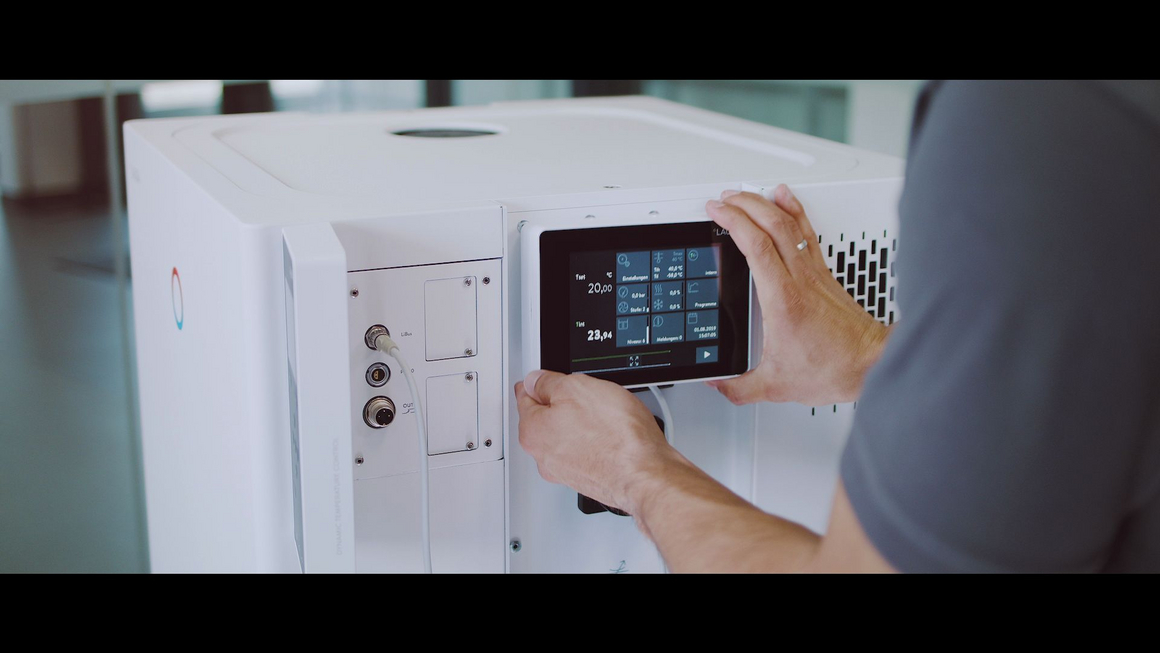


Technical details of the new Integral process thermostats
Learn everything about the new generation
of Integral process thermostats in our webinar
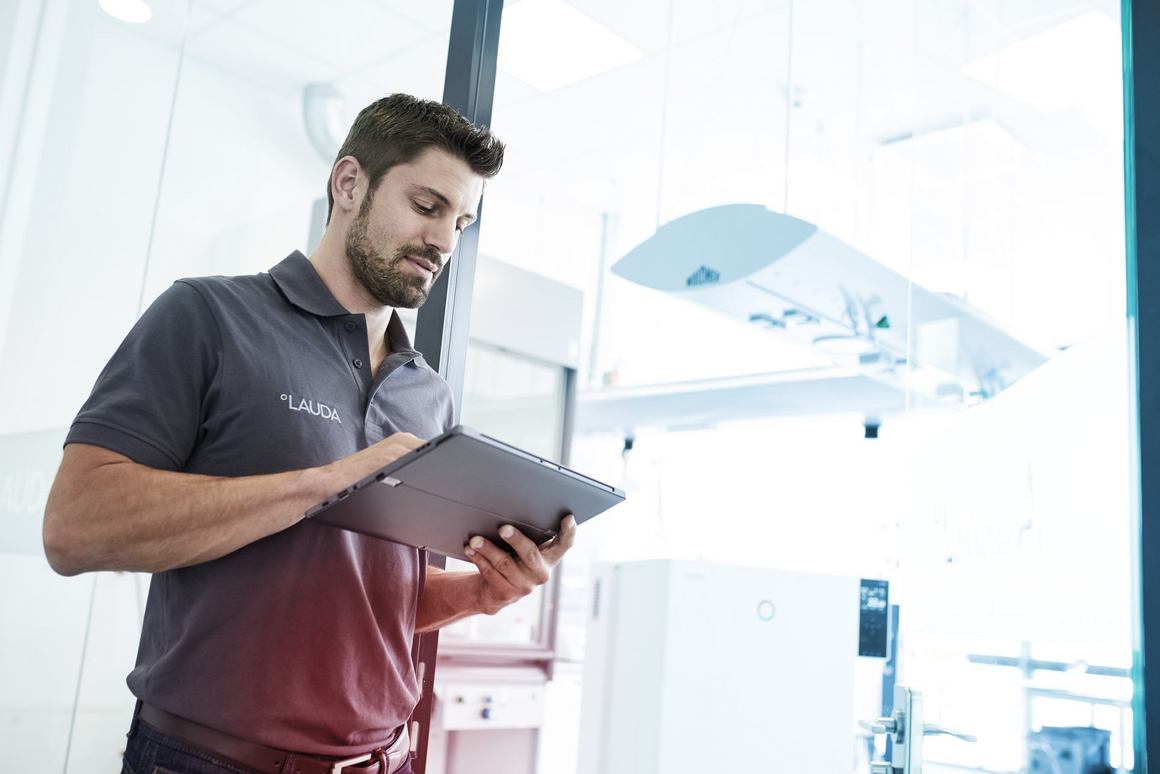
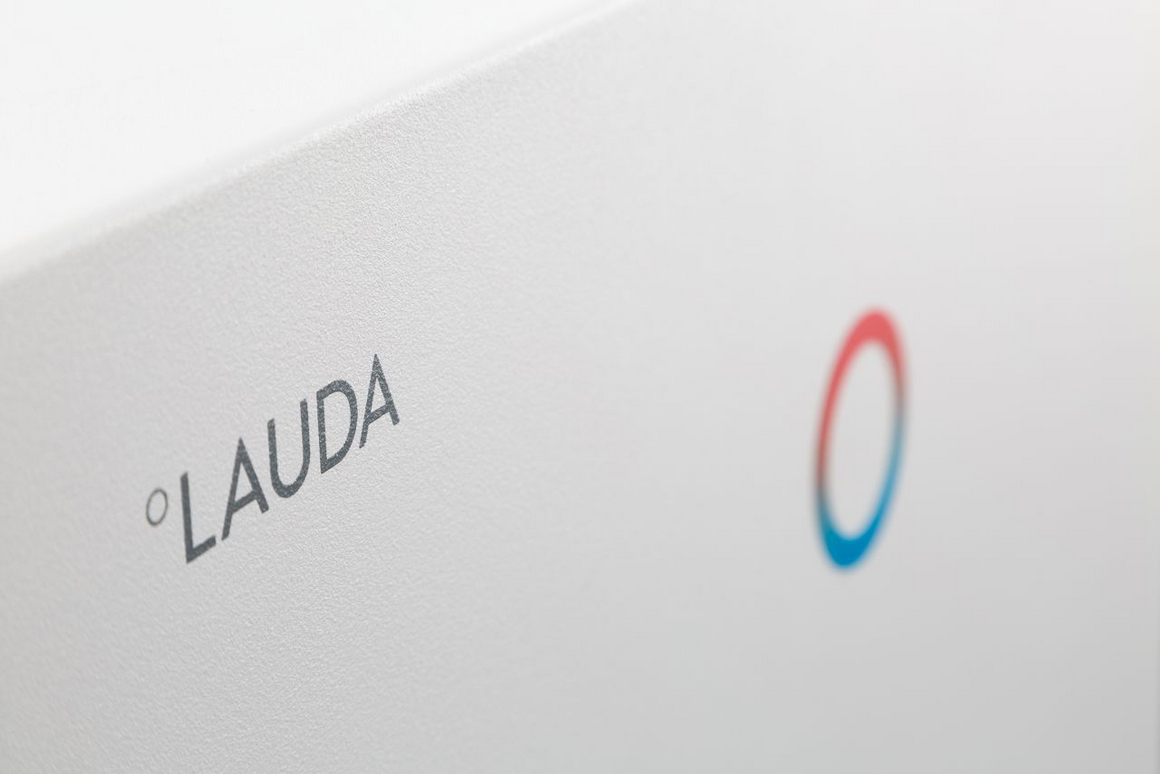
A trip into the future - The new LAUDA device design
After LAUDA had already presented its completely new, award-winning brand identity at the beginning of 2018, the company is now taking the next logical step. All the appliance lines of the world market leader for temperature control technology have been translated into the new design language and standardised in a strong, logical and coherent system.
The new design language of the LAUDA portfolio is not only of a design nature. Points such as easy service access, clear operation and simplified assembly are among the strategic objectives in the design process.
Request a quote now
Intuitive interface concept for maximum connectivity
The new Integral process thermostats feature a modular and future-proof interface concept for maximum connectivity of your processes. The devices are equipped as standard with interfaces such as Ethernet, USB or Pt 100. Additional interfaces and communication protocols can easily be added via modules. This allows Integral thermostats to be flexibly integrated in various communication scenarios.
Available modules for T and/or XT models
- RS 232/485
- Namur contact
- Sub-D contact
- Profibus
- EtherCat RJ 45
- USB
- Pt 100
- Analog module
- Ethernet
You can find more information on our interface modules in our section Accessories.
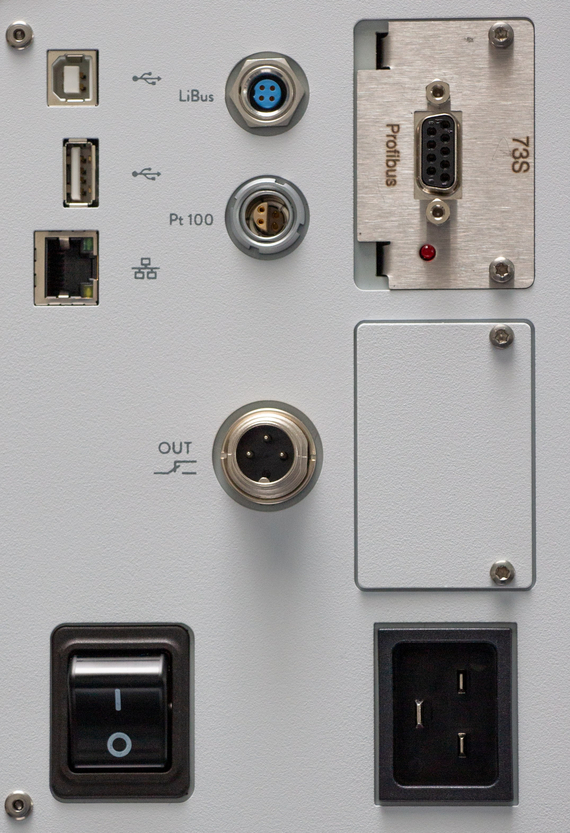
Integral process thermostats – Ready for the digital future
With the new Integral devices, LAUDA is driving forward the networking of temperature control technology. As the first series device in the history of LAUDA, the process thermostats have an integrated web server. This allows the devices to be integrated in existing company networks and therefore monitored and controlled via PC, or with mobile devices like a tablet or smartphone, if desired. The devices can be installed and operated in separate locations, if required. This enables location-independent monitoring and control. The thermostats can also be easily controlled via a modern TFT display directly on the device.
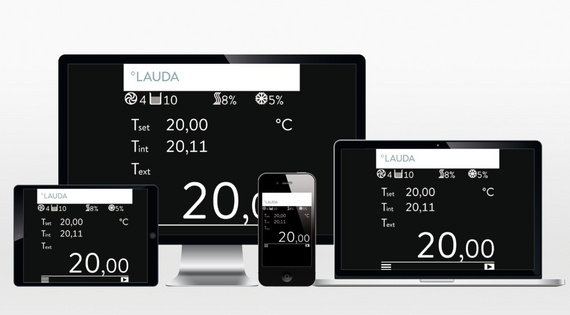
Flexibility through improved pump performance
In many working areas of the Integral models, such as temperature control of pressure-sensitive glass reactors, the pump and delivery pressure of the process thermostats is of decisive importance. In this respect, we were able to significantly advance the new Integral process thermostats. With an improved pump performance (see the Integral XT models in the graph), the units achieve a remarkable increase in volume flow up to 120 L/min and maximum delivery pressures up to 6 bar.
Request a quote now
Application examples for LAUDA Integral process thermostats
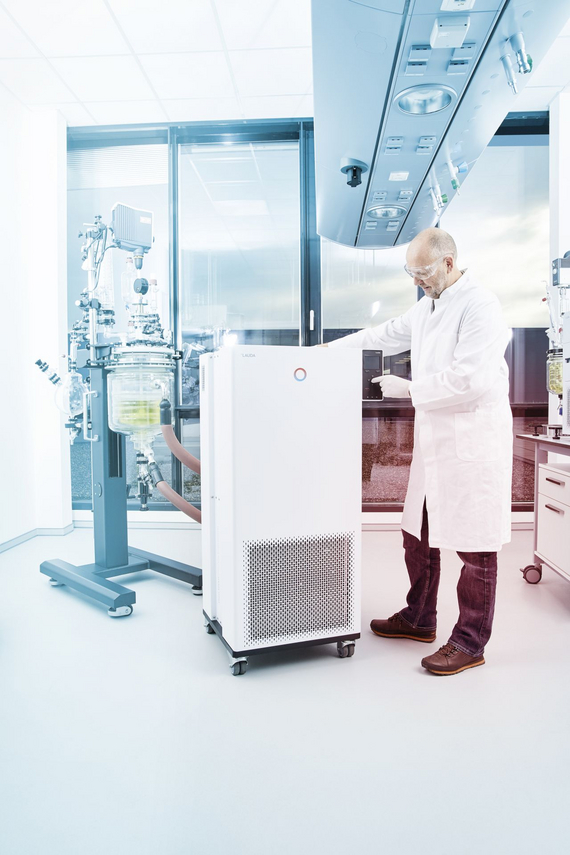
LAUDA Integral process thermostats heat and cool reliably in a wide range of applications in a wide variety of industries. The devices are used in the following applications, among others:
- Temperature control of stirred tanks
- Temperature control of reactors in chemistry, pharmacy or biotechnology
- Temperature tests on test benches in the automotive industry
- Climate simulation
- Performance tests
- Material tests
- Process temperature control for scale-up processes in microreactor technology
- Simulation of temperature curves
- Space simulation in mechanical engineering/electrical engineering

